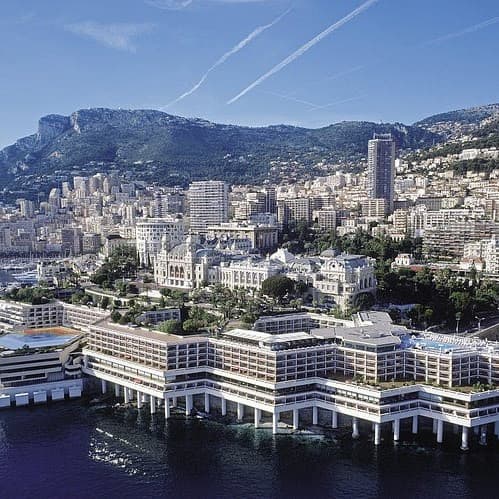Offshore
Beyond Tax Benefits: Essential Insights For Relocation To Monaco

There are, on the face of it, many attractions that Monaco has as a jurisdiction for UHNW individuals, and the stakes have become more significant as governments in certain countries turn up the tax heat. But there are pitfalls and risks which must be considered.
The following article is from Christine Pasquier Ciulla (pictured below), a partner and co-founder of CMS Monaco's private client team. She discusses the challenges and potential benefits for ultra-high net worth individuals thinking of moving to Monaco. (See recent articles we have written about developments in the European principality - here, here and here.) The editors are pleased to share these views; the usual editorial disclaimers apply. To comment and suggest ideas, email tom.burroughes@wealthbriefing.com and amanda.cheesley@clearviewpublishing.com

Christine Pasquier Ciulla
The media reports are clear: a record number of high net worth
and ultra-HNW individuals are set to leave the UK. They will join
many who have already left, according to data provided by the
Henley Private Wealth Migration Report 2025, which was published
in June. The report forecasts a net outflow of 16,500 HNW
individuals from the UK in 2025 – the largest annual loss
recorded by the report in the past decade. Remarkably, for the
first time, the UK has overtaken China as the country
experiencing the highest number of millionaire departures.
Recent UK tax reforms have been cited as the primary cause. The abolition of non-domiciled (non-dom) status in April 2025, changes to UK inheritance tax (IHT) and sustained economic uncertainty have combined to increase the tax burden on wealthy individuals. Research indicates that the reasons why they are leaving the UK and seeking more attractive options elsewhere – to protect their assets from these and other potential new taxes in forthcoming budgets, and to reduce or potentially eliminate their overall tax liabilities.
Several countries, especially in Europe and the Middle East, have recently positioned themselves as attractive destinations for wealthy individuals seeking to relocate. They are actively seeking to draw in high net worth individuals by offering favourable tax regimes and “Golden Visa” programmes.
In choosing between potential jurisdictions in which to relocate, quality of life, privacy, and stability are also paramount considerations. Invariably, wealthy individuals want to live in an environment that provides these features, as well as more efficient wealth structuring opportunities, a favourable tax regime, and an attractive lifestyle offering.
A white-listed jurisdiction for tax purposes under EU Council criteria, Monaco has a long-standing reputation as a favoured tax centre for wealth. The principality abolished personal income tax for its residents in 1869, making it an attractive destination for wealthy people ever since. In addition, residents (except for French and American nationals) pay no wealth tax, annual property tax, or council tax, as well as a full exemption of gift and inheritance taxes between spouses and in direct descendant lines. The only direct tax levied in Monaco is on the profits of industrial and commercial activities. Beyond these tax advantages, Monaco also offers a high level of political and economic stability and security, a luxurious lifestyle, as well as prestigious cultural and recreational events.
Benefiting from a prime location in the French Riviera, the Principality of Monaco stands out as an exceptionally attractive destination for individuals and families seeking a secure, stable, and cosmopolitan environment. Its unique combination of political stability, favourable tax regime, high-quality healthcare and education, and robust legal framework for asset protection makes it a preferred choice for high net worth individuals from around the world. For these reasons, an increasing number of UHNW entrepreneurs are relocating to Monaco and deploying their business operations locally.
Given the increased interest in relocation to Monaco, international lawyers and other professional advisors to wealthy individuals need to understand the local legal system to avoid costly missteps.
So, what are the key considerations for lawyers and advisors?
-- Legal culture differs significantly across countries and legal systems, making it essential to be aware of these distinctions when moving to a new jurisdiction. A notable example is the approach to testamentary freedom. Monaco, as a civil law jurisdiction, imposes strict inheritance regulations. Under Monegasque substantive law, children – regardless of their age – are entitled to a mandatory share of their parents’ estate, a concept known as forced heirship. As a result, parents cannot completely disinherit their children. However, the Monegasque substantive law does permit the exclusion of the surviving spouse from the will. Foreign nationals can, however, elect their national law to govern their succession.
-- Monaco’s legal environment offers a range of opportunities for international clients, particularly those seeking to optimise personal and financial arrangements. The principality’s civil law system, including distinctive forced heirship rules and private international law provisions, can have a significant impact on asset management and succession planning. It is crucial to review and, where necessary, adapt wills, prenuptial agreements, and other estate planning documents to ensure compliance with Monegasque law and to safeguard clients’ intentions and family interests. International families may benefit from tailored solutions designed to minimise legal complexities and prevent disputes.
-- While Monaco’s security, Mediterranean lifestyle, and favourable tax regime are powerful draws for wealthy individuals, many overlook the legal complexities that come with relocation. Contrary to popular belief, Monaco’s tax advantages do not automatically simplify legal matters. In fact, moving to Monaco changes domicile status and the legal framework governing divorce, child custody, and inheritance – each with its own unique challenges.
To fully benefit from all that Monaco offers and to avoid costly surprises, it is essential to seek expert legal advice tailored to personal circumstances before or upon relocating. This proactive approach ensures that interests are protected and transition is as smooth as possible.
To achieve domicile status, for example, individuals need to obtain a residence permit: secure accommodation, prove financial self-sufficiency, and usually spend more than six months a year in the principality.
Before beginning the application for a Monegasque residence permit, non-EEA nationals need to apply for a long-term visa from their country of residence. Once a residence card (Carte de Sejour) is obtained, a residency certificate for tax purposes can be applied for after six months of residency.
-- Cohabiting couples should be aware that, unlike many other jurisdictions, Monaco does not offer any legal or financial protections outside marriage. Without a formal agreement, cohabitation is not legally recognised under local law: living together does not therefore grant any specific rights. This applies to both same-sex and opposite-sex couples.
Unmarried cohabiting couples can, however, formalise their relationship through a Contrat de Vie Commune (Civil Partnership Agreement). While not as comprehensive as marriage, this formal agreement provides cohabiting couples with certain legal protections, particularly in matters of tax and social security. By entering a Contrat de Vie Commune, couples can secure greater financial stability and clarity, helping to prevent disputes and safeguard their shared interests.
-- In the context of comprehensive wealth planning, it is essential to consider advance arrangements in the event of incapacity, particularly given the growing need to protect vulnerable adults in an ageing society.
By establishing a lasting power of attorney, individuals can ensure that their wishes are respected regarding both personal welfare and asset management, providing greater legal certainty and reducing the risk of future disputes or challenges.